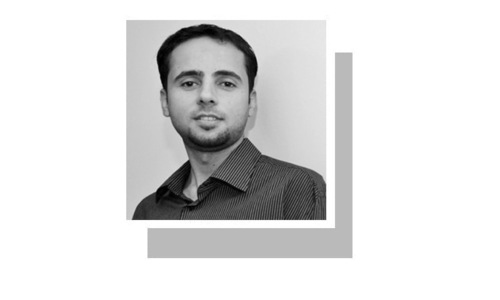IT is the greatest leader’s greatest speech.
Seventy years ago today, Mohammad Ali Jinnah took to the floor of the Constituent Assembly as its first elected president and delivered the iconic lines, “You are free; you are free to go to your temples, you are free to go to your mosques or to any other place or worship in this state of Pakistan. You may belong to any religion or caste or creed that has nothing to do with the business of the state.”
He added: “We are starting in the days where there is no discrimination, no distinction between one community and another, no discrimination between one caste or creed and another. We are starting with this fundamental principle that we are all citizens and equal citizens of one state.”
Seventy years later, Mr Jinnah’s founding vision and direction for the country have yet to be realised. Indeed, an argument can be made that this nation has drifted further than ever from the one that he had envisioned. The founding father had warned that the “first duty of a government is to maintain law and order, so that the life, property and religious beliefs of its subjects are fully protected by the state”, but society itself has fallen prey to extremism and an infrastructure of hate.
Most worryingly, Mr Jinnah’s vision of a secular, constitutional democratic state focused on the welfare and material good of its people has itself fallen victim to hate and distortion. The very word ‘secular’ is considered taboo by large sections of the polity. Democracy, too, is yet to be meaningfully accepted, with elected governments always vulnerable to undemocratic pressure and attack.
What would Mr Jinnah make of the sight of yet another ousted elected prime minister travelling down the fabled GT Road as political uncertainty and turmoil swirl across the political landscape again? Surely, as Mr Jinnah exhorted in his Aug 11 speech, some of the responsibility for the upheaval and drift from the country’s founding ideals lies with the political class too.
Bribery and corruption, black-marketing, nepotism and jobbery — all ills that Mr Jinnah identified as fundamental impediments to a democratic, fair and just society fall in the domain of civilian control. The failure to address fundamental social inequalities is nearly at par with the crimes against democracy the country has suffered. It may take several more decades before a Pakistan more in line with Mr Jinnah’s aspirations can be established.
Published in Dawn, August 11th, 2017












































